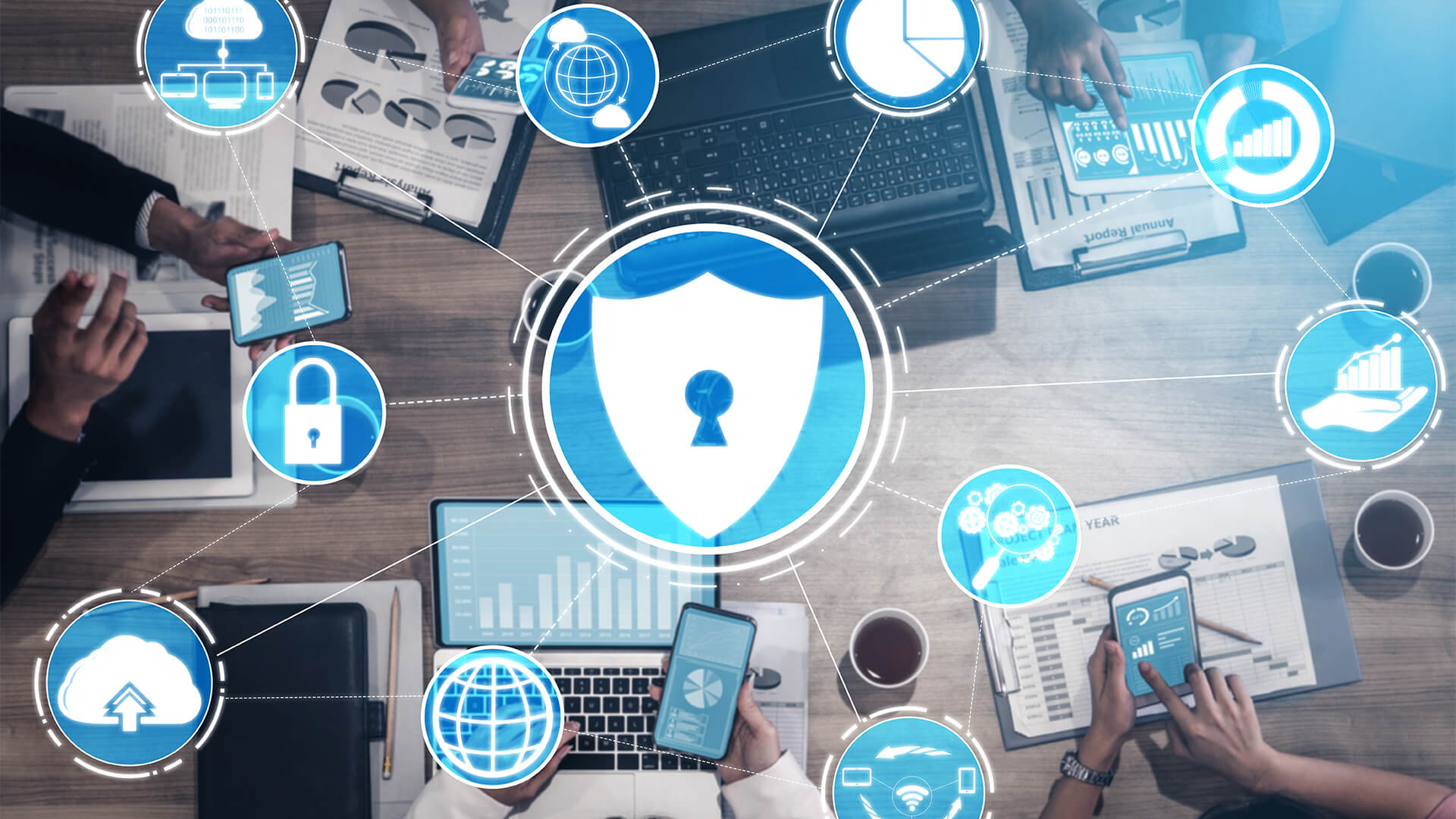Investing in proper security for your business protects so much more than your own commercial interests. It also protects your clients, customers, and even your employees, all of which play vital roles in your company’s continued success.
Your customers would only offer you their personal information if they’re confident that you’re able to keep it secure. In light of this, you have a professional obligation to do exactly that. Operating a safe, secure and reputable organisation will reduce staff turnover and customer churn. Plus, it will help you attract more leads and customers in the future, and retain all of your best clients, suppliers and shipping partners.
Here are our top tips for keeping your business secure, both online and in the real world.
Keys to Staying Secure Online
Cybercrime and data breaches are becoming increasingly concerning threats as the age of technology progresses.
Businesses that operate online need to stay ahead of the cybersecurity game to detect potential threats and prevent malicious third parties from accessing their networks.
1. Create Strong, Complex Passwords
Passwords are one of the best and most widely used options for securing business networks and online portals that require logins. It’s recommended that you avoid using identical or similar passwords for more than one account or portal. If you use the same password for every platform your business uses and that password is leaked, cybercriminals can access all of your accounts instead of just one.
Simplistic passwords like ‘1234’ or ‘[name][surname]’ can put your company at risk. The more complex and random your passwords are, the more secure they will be. Yours should ideally include special characters, numbers, and upper and lower case letters in unique configurations. Passwords should be longer than 10 characters if possible.
It’s also crucial to provide employee training on password creation and management. Instruct your staff not to share their network passwords with anyone else, and to log out whenever their accounts are not in use.
2. Use Antivirus and Anti-Malware Software
In most cases, cybercriminals will attack your company networks and systems using custom-built malware, trojans and viruses. Malicious applications can enter your network in several different ways. It’s therefore important to use effective antivirus software to detect and quarantine them before they can access your vital data.
Most modern antivirus programs are cloud-based and purchased via subscription. These programs update automatically via the cloud to offer you continuous, reliable protection.
3. Use a VPN or Proxy
There are many ways to secure a business network, and some of them may require a significant upfront investment on your part. You can encrypt your company’s network and make data transfers secure by using a paid VPN or proxy service.
These services create highly secure channels that facilitate the secure and private transfer of information. Proxies also ensure anonymous and safe internet access.
Speaking of secure data transfers, cloud-based storage is a far safer way of storing important documentation and files than traditional on-premises methods. If something happens to your office hardware or storage facilities, you risk losing everything. However, cloud storage allows you to store your data securely online and access it from anywhere in the world using the right authentication measures.
4. Implement Two-Factor Authentication
Two-factor authentication is the new gold standard in online security. Having strong passwords is important, but it may not be enough to stop cyberattacks alone.
If you use a password manager extension, your entire network becomes vulnerable if someone manages to hack this application. Implementing two-factor authentication adds additional security to your network. It does so by requesting physical key or biometric authentication, making it possible to block most criminal attacks.
Offline Security Best Practices
Your business’s offices store all of its most valuable assets and data, including documentation, contracts, equipment and computers.
It’s essential to put preventative measures in place to secure your physical offices and protect them against invasion.
5. Implement Physical Access Control
Depending on the nature of your business, you may need to physically prevent people from entering certain areas of your office. Money storage rooms and data and server centres are just a few examples of areas that need access control.
A great solution to this issue is to invest in physical security systems that require the use of digital or physical ID. Some systems use photo or biometric identification to grant specific access to individuals who have permission to enter access-controlled areas.
6. Install Security Cameras and Alarm Systems
Monitored business security systems with cameras will enable you to keep a watchful eye on your business premises at all times. Many modern systems connect to personal devices like smartphones and tablets via the IoT, which allows you to call up real-time footage of your premises whenever and wherever you need to.
7. Install Office Motion Sensors
Motion sensors can connect to your existing security system to give your premises an added layer of protection against criminal attacks.
Most of these sensors will automatically turn on cameras, lighting systems, and even alarms when they detect motion. This makes them perfect for use at night or in areas that employees seldom visit.
8. Invest in Fireproof Safes
Invasions aren’t the only threat that your office premises may face. Fires, floods, and other natural disasters can cause costly damages to your assets and documents if they’re not protected.
Fireproof safes can safeguard your most valuable assets against unexpected fires—and even break-ins. This might be a bit of an investment, but it’s well worth the money to grant you the peace of mind you want while you’re out of office.
The Takeaway: Proactive Security Measures are a Must
There are dozens of security threats facing businesses every day, both on the internet and in the real world. It’s crucial that you secure both environments to ensure the safety of your assets, your employees, your data, and your customers.
Even simple security upgrades like the ones mentioned above can add valuable protection to your operation and build trust between you and your customers.








